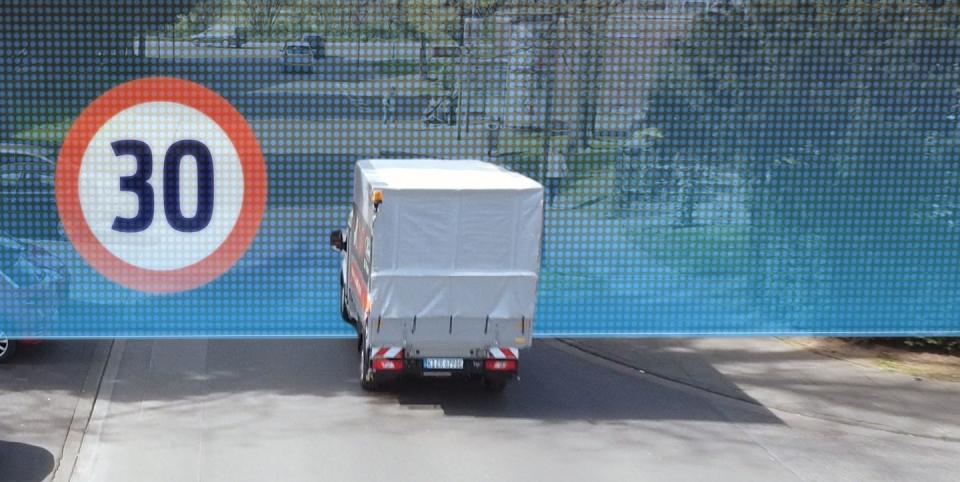Ford Testing GPS Geofencing Tech to Curb Speeding

Ford is conducting a 12-month trial of its Geofencing Speed Limit Control system in Cologne, Germany, to test automated speed limit compliance.
The experiment is confined to a number of areas in the city, as Ford partners with commercial fleet operators.
Geofencing Speed Limit Control could be introduced in Ford's passenger and commercial vehicles in the future.
Cars have known where they are and what the speed limits are on certain roads for quite a while. So it was perhaps only a matter of time before digital road maps assumed the role of actually enforcing compliance with speed limits, rather than simply displaying the local speed limit through road sign recognition. That time now appears closer than ever.
Ford is currently testing connected vehicle technology in the city of Cologne, Germany, that uses geofencing to advance an additional but perhaps unexpected goal: Removing speed limit signs completely.
As GPS technology allows vehicles to track their own movement along a digital map that contains information regarding speed limits on each segment of road, it's not rocket science to actually make the vehicle automatically slow down in accordance with those speed limits. The goal of improving road safety in areas such as school zones and other pedestrian traffic areas through this technology needs no introduction—at present it's largely enforced by cameras writing tickets in European cities.
"In Europe, up to 29% of road fatalities are pedestrians and cyclists, depending on the country," Ford points out. "Setting up 30 km/h [18.6 mph] zones is considered one of the key measures to reduce the risk to pedestrians in urban areas, as drivers have more time to react and the impact speed is lower."
But this trial, set to run for 12 months, is more nuanced, as Ford's Geofencing Speed Limit Control system must also work with other vehicles on the road, not impeding traffic flow and thereby not increasing the risks of other types of accidents. This is why Ford is testing this technology in a fairly limited area of one city in Germany, in all 30-km/h zones in the center of Cologne and in special 50-km/h [31 mph] and 30-km/h [18.6 mph] zones in other parts of the city. Ford has partnered with waste disposal company AWB to test Ford E-Transit vehicles with its Geofencing Speed Limit Control system, which the automaker says could be used in future Ford passenger and commercial vehicles.

"In the future, Ford’s Geofencing Speed Limit Control system could enable drivers to set their own geofencing zones at speeds as low as 20 km/h [12.4 mph], including at depots and private facilities," Ford says. "Speed limits could also be set dynamically, to take into account local hazards, temporary road works and the time of day."
In one sense it is perhaps surprising that this technology is not more commonplace today in commercial and private vehicles, even though GPS tracking and telemetry is certainly featured in many connected commercial vehicles currently. But two issues that have seemingly stymied wider implementation and research, it has long been suspected, have been the potential to create traffic jams in areas where speed limits are outdated and not suited to actual traffic flow, in addition to the possibility of promoting overtaking by other vehicles on roads not designed for such maneuvers. Skeptics of this technology, as with red light cameras, have pointed out that road safety could be trading one persistent source of harm for another by exacerbating speed differentials.
In effect, this is what this experiment is all about: Testing the downside of geofenced speed-limit compliance in certain areas of a city.
Before you counter that such a system would hardly be a selling point in a private vehicle, we'd suspect that vehicles with these types of parental controls as an option would likely be an in-demand item for those buying vehicles for young drivers, if not for the actual aim of preventing habitual speeding and for keeping insurance costs down. Ultimately, a wide-scale rollout of such a system in private vehicles in the US would need other incentives to work, such as a proven record of not contributing to other types of impolite road behavior.
Should Ford offer geofenced speed control systems in its vehicles stateside? Let us know in the comments below.

 Yahoo Autos
Yahoo Autos 